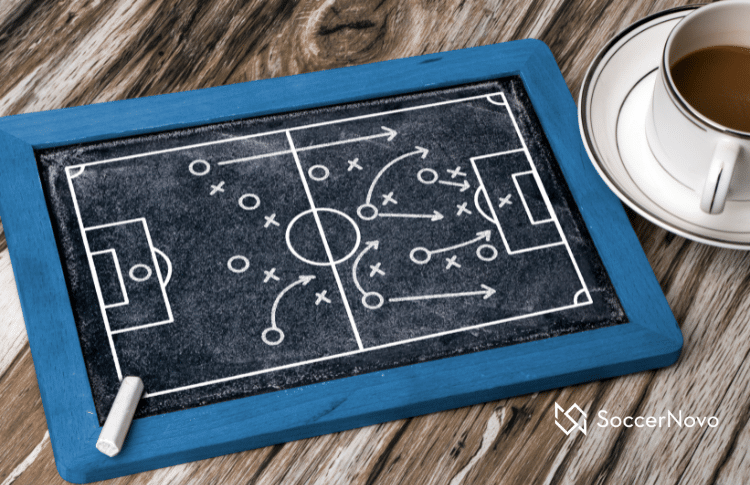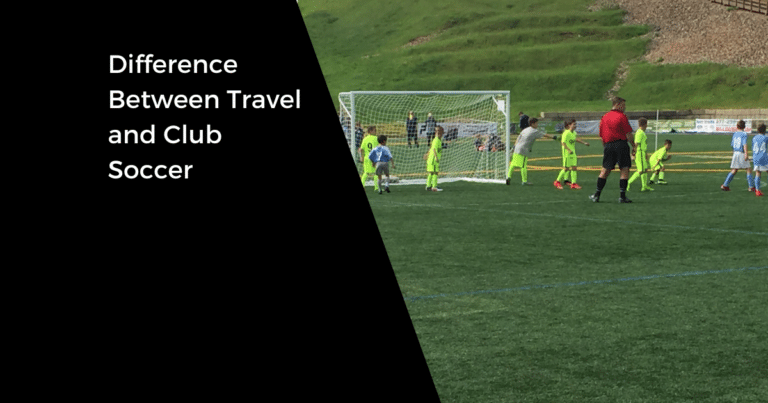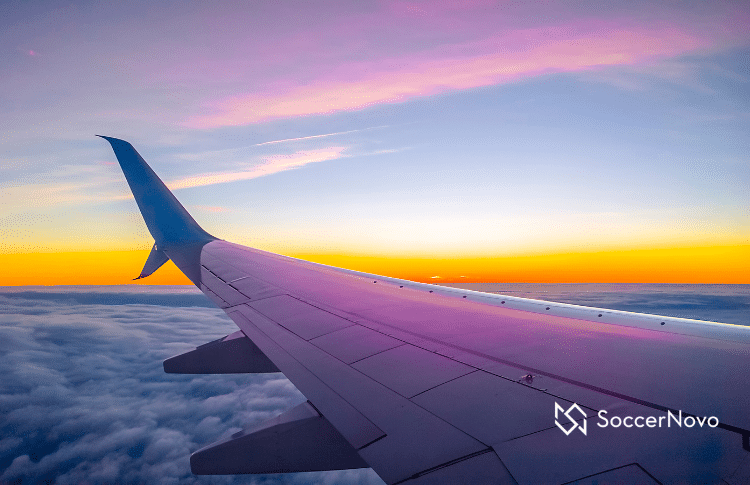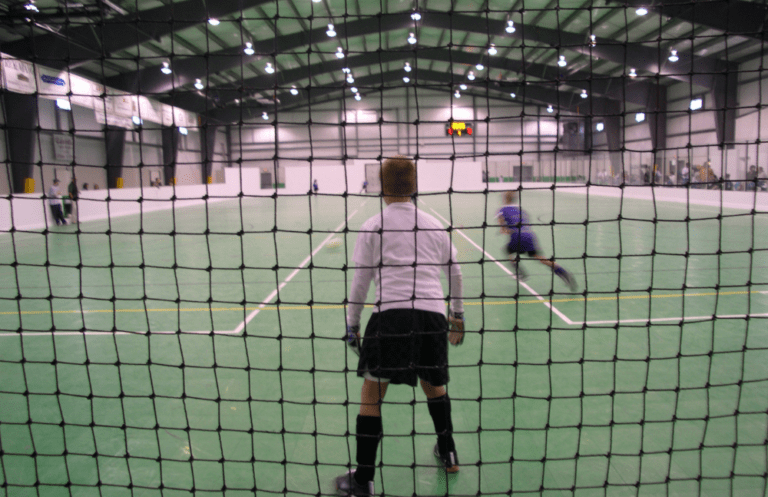Caffeine Before Soccer Game: Does It Improve Performance?

Many soccer players wonder if they should take caffeine before a soccer game. Caffeine is a stimulant that can help improve focus, alertness, and physical performance. Taking caffeine, in moderation, can provide a boost in energy for soccer players.

At the same time though, too much caffeine can have a negative effect on your body and mind.
Before we get into the article, note that many medical professionals generally recommend the following:
- 3 and Younger: No Caffeine
- Ages 4-6: Less than 45 mg
- Ages 7-9: Less than 60 mg
- Ages 10-11: Less than 85 mg
- Ages 12-18: Less than 100 mg
- Adults (older than 18): Less than 400 mg of caffeine a day
This isn’t an article recommending soccer players take caffeine before a match. In fact, I wouldn’t recommend it for my child. I would rather see him get a good night’s sleep and eat healthy prior to the game. But, I wanted to write this article to just lay out the facts and explore both sides of the caffeine convo.
At the end of the day, it’s important to understand the effects of caffeine and how it can impact your game. We will address all of this in this article.
Should You Take Caffeine Before a Soccer Game?
Should you take caffeine before a soccer game? It depends on a few factors.
First, it is important to understand that caffeine affects individuals differently. Some people are more sensitive to caffeine than others, and the optimal dose may vary from person to person. Therefore, it is recommended to experiment with caffeine consumption during training sessions to determine the ideal dose that works best for you.
Secondly, caffeine can have both positive and negative effects on athletic performance. On the positive side, caffeine has been shown to improve endurance, alertness, and focus, which can be beneficial during a soccer game. It can also reduce the perception of effort, making it easier to push yourself harder during the game.
However, consuming too much caffeine can lead to negative effects such as anxiety, jitters, and increased heart rate. It can also cause dehydration, which can be detrimental to performance. Therefore, it is important to consume caffeine in moderation and stay hydrated throughout the game.
If you are 18 or older, I would try drinking a little coffee (or something else with caffeine) before a training session and see how you feel. If there are no issues, then drinking some caffeine before a game should be a safe bet.
If you are younger than 18, eat some chocolate that contains a bit of caffeine to fuel your body. This may help with a boost of energy on the soccer field.
Understanding Caffeine
Caffeine is a natural stimulant found in various foods and drinks, including coffee, tea, energy drinks, and chocolate. It is also available in supplement form.
When you consume caffeine, it is absorbed into your bloodstream and travels to your brain. It blocks the action of adenosine, a neurotransmitter that promotes sleep and suppresses arousal. This leads to an increase in the activity of other neurotransmitters, such as dopamine and norepinephrine, which can improve mood, focus, and cognitive function.
Caffeine can also stimulate the central nervous system and increase heart rate, blood pressure, and respiration. This can improve physical performance by increasing endurance, strength, and power. In some cases, caffeine can also reduce the perception of effort and fatigue, allowing you to exercise longer and harder.
However, the effects of caffeine can vary depending on the dose, timing, and individual response. Consuming too much caffeine can lead to side effects such as anxiety, restlessness, insomnia, and rapid heartbeat. It can also cause dehydration, which can be detrimental to athletic performance.
Effects of Caffeine on the Body
The increase in neural activity can lead to a range of effects on the body, including:
- Increased Alertness: Caffeine is a stimulant that can increase alertness, reduce fatigue, and improve cognitive function. It can help you stay focused and alert during a soccer game, which can be especially useful during long matches or when you need to make quick decisions.
- Improved Endurance: Caffeine has been shown to improve endurance performance by increasing the availability of fatty acids, which can be used as a fuel source during exercise. This can help you maintain your energy levels during a soccer game and reduce the risk of fatigue.
- Increased Heart Rate and Blood Pressure: Caffeine can increase heart rate and blood pressure, which can be beneficial during exercise as it can help increase blood flow to the muscles. However, it is important to note that excessive caffeine consumption can lead to negative cardiovascular effects, so it is important to consume caffeine in moderation.
- Diuretic Effects: Caffeine has diuretic effects, which means it can increase urine production and lead to dehydration. It is important to consume plenty of water and other fluids to stay hydrated during a soccer game, especially if you are consuming caffeine.
Caffeine Consumption Before Soccer Game
If you want to take some caffeine prior to a soccer game, here are some recommendations.
Ideal Timing
The timing of caffeine consumption is crucial to its effectiveness. You should consume caffeine about 30-60 minutes before the game to allow time for it to be absorbed into your bloodstream.
This will give you enough time to feel the effects of the caffeine during the game. Consuming caffeine too early or too late may not provide the desired benefits.
Recommended Dosage
The recommended dosage of caffeine varies depending on your body weight and tolerance. A general guideline is to consume the following:
- Ages 10-11: Less than 85 mg
- Ages 12-18: Less than 100 mg
- Adults (older than 18): Less than 400 mg of caffeine a day
If you haven’t had caffeine before a soccer game in the past, just start with a small amount.
Potential Risks and Side Effects of Caffeine
When it comes to caffeine consumption before a soccer game, there are some potential risks and side effects to keep in mind. These can include dehydration and sleep disruption.
Dehydration
Caffeine is a diuretic, which means it can increase urine production and lead to dehydration. This is especially concerning for athletes who need to stay hydrated to perform at their best. Dehydration can cause a range of issues, including fatigue, cramps, and even heat exhaustion.
To avoid dehydration, it’s important to drink plenty of fluids like water and Gatorade before, during, and after the game. You should also limit your caffeine intake and opt for water or sports drinks instead.
Sleep Disruption
Caffeine is a stimulant that can interfere with your sleep patterns. If you consume caffeine before a soccer game, it can make it harder to fall asleep at night, which can impact your performance the next day. Lack of sleep can cause fatigue, poor concentration, and slower reaction times.
To avoid sleep disruption, it’s recommended that you limit your caffeine intake and avoid consuming it in the late afternoon or evening. You should also establish a consistent sleep routine and aim for 7-9 hours of sleep each night.
Alternatives to Caffeine Before Soccer Game
If you’re looking for alternatives to caffeine before a soccer game, there are several options that you can consider. Here are a few healthy options:
1. Water
Drinking water before a soccer game is crucial to staying hydrated. Dehydration can lead to a decrease in performance, so it’s important to make sure that you’re drinking enough water before the game. You should aim to drink at least 17-20 ounces of water 2-3 hours before the game, and then another 7-10 ounces 10-20 minutes before the game.
2. Sports Drinks
Sports drinks can be a good alternative to caffeine before a soccer game. They contain electrolytes and carbohydrates that can help to keep you hydrated and provide energy. However, make sure to choose a sports drink that doesn’t contain too much sugar or artificial ingredients.
3. Beet Juice
I know…yuck! But, beet juice is a natural source of nitrates, which can help to improve blood flow and oxygen delivery to the muscles. This can lead to improved performance during exercise. Some studies have also shown that beet juice can help to reduce muscle soreness after exercise.
4. Tart Cherry Juice
Tart cherry juice is another natural alternative to caffeine before a soccer game. It contains antioxidants that can help to reduce inflammation and muscle damage, and some studies have shown that it can also improve sleep quality.
5. Green Tea
Green tea is a natural source of caffeine, but it also contains other compounds that can help to improve focus and concentration. It’s also a good source of antioxidants, which can help to reduce inflammation and improve overall health.
Conclusion
In summary, caffeine supplementation can be an effective way to improve your physical performance during a soccer game. Research suggests that a moderate dose of caffeine, ingested 5-60 minutes before the game, can produce valuable improvements in certain abilities related to enhanced soccer physical performance.
It is equally as important to be aware of the potential side effects of caffeine, such as increased heart rate, anxiety, and jitteriness.
If you are considering using caffeine as a supplement before a soccer game, it may be wise to consult with your doctor or a sports nutritionist to determine the appropriate dosage for your individual needs.
Frequently Asked Questions
What are some good alternatives to caffeine before a soccer game?
What are the potential side effects of consuming energy drinks before a soccer game?
How long does caffeine typically last in the body?
What are some other ways to boost energy before a soccer game?

Written By: SoccerNovo
SoccerNovo is an independent youth soccer media brand built to help parents, players, and coaches better understand the game and the pathways available in U.S. soccer. Our mission is to make youth soccer simpler, clearer, and more accessible for everyone involved in it.
Let’s connect






